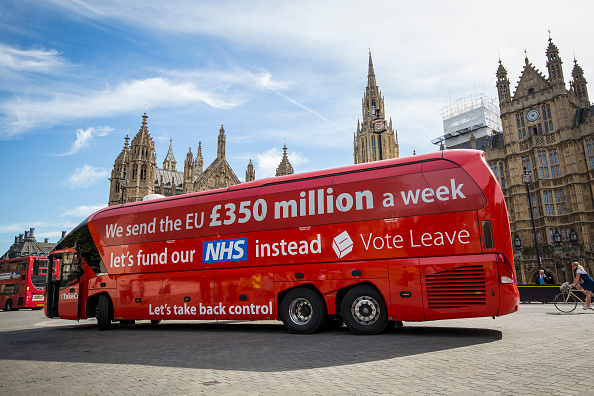Conservatives are paralysed by a false idea of what the ‘take back control’ means

It seems silly to tell a man whose resignation ultimately brought down a Prime Minister, but as I watched the now infamous video on keeping Brexit safe by shredding legislation, all I could think was: Rishi Sunak shouldn’t quit his day job.
Putting aside the amateurish production value and heavy-handed scripting, its outdated delivery serves to show how desperately the Conservative’s are clinging to a desperate idea: to swiftly review or replace all EU regulations in the most Partridge-esque fashion possible.
It may have been mocked by their enemies on Twitter, but within the Conservative party there are many a Tory Brexiteer who worry that leaving the European Union would be for nought if it does not pave the way for substantial deregulation.
It is apt that this outsized role that hatred of EU regulations plays is an enduring legacy of Boris Johnson. As the Daily Telegraph’s Brussels Correspondent, the outgoing prime minister forged what became a popular rallying cry for the new class of Euroscepticism, one founded on mocking regulations being imposed on Britain by “Eurocrats” in Brussels. The now famous example is the European Commission’s attempt to impose common standards on the quality of fruit being turned into a punchline on the EU banning bendy bananas.
But for all the jokes, such regulations are essential for international free trade. If nations are to economically disarm against foreign competition, they had to have some reassurance that domestic industries wouldn’t be placed at a disadvantage because foreign companies were being bankrolled by neighbouring governments or being allowed to work their employees half to death.
Back in the 1990s, Britain was one of the most economically liberal members of what was still a club almost entirely reserved for Western European nations. It was us looking to entice industry from Germany and elsewhere with the promise of cheaper workers, fewer regulations, and lower taxes.
For this reason, both Thatcher and John Major bitterly resisted attempts to impose European-style social legislation on Britain. This is the ancient history many Tory Brexiteers cling to when they talk of a “bonfire of EU regulation” preventing us from realising our full potential. The EU now spans the entire breadth of the continent, with plenty of nations in Eastern Europe who have lower wages and smaller public sectors than us.
In other words: it is simply not the case that European regulation is a code word for imposing greater checks or costs on British industry than we would ourselves. This, eventually, is reflected in the message that finally took Britain out of the European Union.
After all, what are objections to the large number of Eastern Europeans coming to work in Britain if not the fear that cheaper competition was undercutting the British worker? Vote Leave reassured voters that leaving the European Union would not lead to reduced standards in areas such as workers’ rights or food safety, but also promised to maintain the current levels of EU subsidies and increase public spending.
One can forgive a political party talking to itself during a leadership election, but the Tories should be under no illusions that people are asking the government to do less or that Brexit came with an implicit demand to lower standards and change regulation across the board.
Instead, the message that won Brexit was a promise to do more to help Britons. What was the point of that famous bus, proclaiming an extra £350m a week could be spent on the NHS, if not the acknowledgement that we wanted further investment into the UK? As inflation bites into people’s living standards, the desire for government protection is even more acute. This is especially true for some of the formerly-Labour voting Brexiteers the Conservatives are desperate to keep onside.
Whoever becomes the next Prime Minister should put the paper shredder away and focus on protecting British people from the problems that most affect them today. Otherwise at the next election, it will be the Labour Party who get to take back control.
